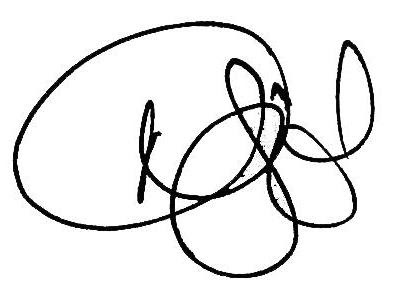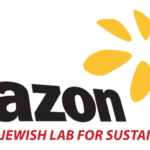Thursday, March 7, 2019 | Rosh Chodesh Adar II, 5779
A new organization called “hazon” has suddenly appeared in Israel. They are using our name – and they have very different values from us. We want to make clear not only that we have no relationship with them but also that we have issued a cease-and-desist letter to them in relation to our name. For more on this, read on…
The word “hazon” means “vision.” There are many things that need fixing in the world and thus many different visions of what could be or should be. Recently a new organization called “hazon” put up billboards around Israel. Were these to protest against poverty or inequality? Against climate change, or species loss, or our human mistreatment of animals? Against discrimination towards minorities?
Oh, no, none of those. It spent money to attack people who are lesbian or gay or transgender or queer. A number of people pointed out to us a recent story about them in The Jerusalem Post. Then yesterday, for good measure, the group, now described as a “hardline national-religious organization” called for demonstrations against Women of the Wall at the Kotel tomorrow morning. Then Arutz Sheva published an op-ed critiquing this new movement from the religious right, not on the basis that it was morally repugnant but on the basis that its tactics were ineffective.
So, first of all, I wanted to let you know that our lawyers have now served a cease-and-desist letter on this new “hazon”. We have spent twenty years associating the word “hazon” with so much that is good and right in Jewish tradition; and we indeed registered the name Hazon as a trademark, nearly a decade ago. We don’t want anyone to think that they can randomly fan flames of hatred in our name.
This is an apposite moment to note that the boundaries of inclusion, across Jewish life and in the wider world, continue to widen, and Hazon strongly endorses this. Just in January, for instance, we started the process of trying to raise money to rebuild the toilets in the main building at Isabella Freedman. Our toilets need refurbishing anyway, but it is a further spur that we want to replace them with gender-neutral stalls.
More broadly, I’m happy to acknowledge the great influence on me and my understanding of the world of any number of queer friends, including especially rabbis Steve Greenberg (who has been a board member and staffer of Hazon, at different times) and Amichai Lau-Lavie (with whom we share office space). Hazon and Keshet grew up together, and I doff my cap to Idit Klein in building and broadening that organization. I’m proud that we share office space with Eshel, which does groundbreaking and indeed life-saving work in relation to the LGBTQ community and the orthodox world. I’m reading at the moment (and strongly commend) Joy Ladin’s remarkable The Soul of the Stranger, her book on reading Torah from a transgender perspective. I was at the Keshet benefit earlier this year that honored three inspirational Jewish teens (two gay, one transgender, one of them the daughter of close friends) who reduced many of us to tears with their passion and their bravery. The original founding board of Hazon was three of us – two women and one guy, two straight and one queer, all of us in our thirties. From the very start, Hazon has been very deeply committed to inclusion as a central part of our work.
And just as we share history, close relationships, and deep values with many people in the queer Jewish world, I similarly have cheered on Women of the Wall these last thirty years, not simply because I support its mission – though I do – but because Bonna Haberman z”l (one of its founders and leaders) was someone I loved, a close friend who had a profound influence on me and without whom there might have been no Hazon. One of my proudest memories, years ago, (when the WOW women were being searched to prevent them from taking a Sefer Torah in to the women’s section of the Kotel) was of actually smuggling a small Sefer Torah into the men’s section, and then surreptitiously handing it over the mechitzah to Bonna, so that she could read from it on the morning of Rosh Chodesh.
Although there are few people in the American Jewish community who would confuse Hazon with this other organization, this is far less so in Israel. And so it is important to us to set the record straight. We have led more than 30 trips to Israel since 2003, with close to 2,000 participants, including in particular (though not only) our Israel Ride with the Arava Institute for Environmental Studies. It is very depressing to think that possibly tens of thousands of Israelis have seen these billboards and may associate the name “hazon” with this vile campaign. We’ll try to make sure that our view on this subject makes it to the Hebrew language press.
This is why we would also especially ask you to like Hazon’s Facebook page, and then invite others to do so. We want to make sure that if someone randomly searches for “Hazon” they find us, and not this other organization. Similarly, please ask your friends at least to visit our website, and ideally to join our mailing list or post about it or connect to it publicly.
One last thought. The environmental movement has been fighting what has sometimes seemed like a series of losing battles in recent years. It is therefore vital that we not lose hope. In the 1960s and 70s and 80s, the campaign for Soviet Jewry bore fruit, against seemingly insuperable odds. In the same time period, Nelson Mandela went from being a prisoner on Robben Island to becoming the President of a free and democratic South Africa. It is against this backdrop that the successful movement towards gay marriage and gender equality, in the nearly twenty years that Hazon has existed, has given me and many others a greater sense of equivalent hope for the environmental movement. I believe that we’re now getting close to a tipping point in relation to factory-farmed eggs, or the use of disposable plastic bottles, and more generally in relationship to climate change and sustainability and the need for some kind of Green New Deal. Certainly, Hazon is putting its shoulder to the wheel to try to make a positive difference in these regards.
And if you want to see what’s possible when you connect Jewish tradition to these contemporary issues with real respect, and with love for other human beings, take a look at The Wellbeing of LGBT+ Pupils: A Guide For Orthodox Jewish Day Schools, published last year by Rabbi Mirvis, the orthodox chief rabbi of Great Britain. Or, indeed, read the obituary of Bonna Haberman, z”l, that I wrote for The Forward on the day of her funeral.
Finally: it’s Rosh Chodesh Adar! This month sees the 25th anniversary of Baruch Goldstein’s murder of innocent worshippers on the morning of Purim. I remember that absolutely vividly, an appalling instance of evil committed in the name of Jewish religious tradition. So this Rosh Chodesh Adar is an especially important time to increase joy in the world, to affirm love and human solidarity as the very essence of Jewish life, and to challenge intolerance and incitements to violence wherever they arise. Even as human civilization crashes through various negative tipping points in relation to the world’s climate, the global campaign that is now underway to respond to this seems to be crossing a parallel and necessary positive tipping point. The Jewish people are and should be deeply committed to this work. This is the kind of hazon, of vision, that I hope will inspire and engage all of us. Let us do this work, and let us do it with love and with joy.
Chodesh tov, Shabbat shalom,

Nigel
PS: Read our press statement here. And please like our Facebook page.
PPS: Our hazon – our vision – has never been more necessary. Become a monthly sustainer — the rocks upon which all our work rests.
click here for press coverage